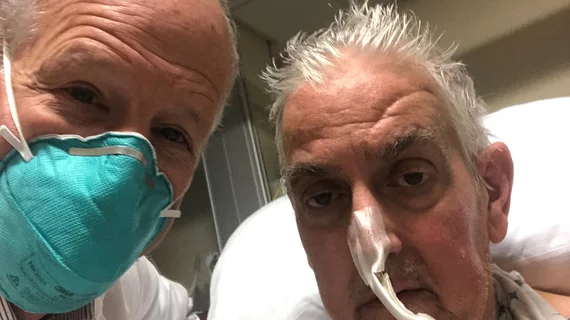Pig heart transplant patient dies 2 months after historic procedure
David Bennett, the first patient to receive a genetically modified pig heart has died. He was 57 years old.
The modified pig heart was transplanted into Bennett on Jan. 7 at the University of Maryland Medical Center (UMMC) in Baltimore. He had terminal heart disease and was denied a traditional heart transplant by several transplant centers, including UMMC. He had been bedridden since October 2021 due to his condition.
UMMC recently shared an update on Bennett’s condition, noting that he was seeing a physical therapist almost daily and even got to watch the Super Bowl.
Bennett lived for two months with the modified heart. His doctors knew his condition was starting to deteriorate, and he was able to communicate with his family during his final hours.
“We are devastated by the loss of Mr. Bennett,” Bartley P. Griffith, MD, the surgeon who transplanted the pig heart in January, said in a prepared statement from UMMC. “He proved to be a brave and noble patient who fought all the way to the end. We extend our sincerest condolences to his family.”
Griffith, clinical director of the Cardiac Xenotransplantation Program at the University of Maryland School of Medicine (UMSOM), added that Bennett was “known by millions of people around the world for his courage and steadfast will to live.”
“We have gained invaluable insights learning that the genetically modified pig heart can function well within the human body while the immune system is adequately suppressed,” Muhammad M. Mohiuddin, MD, scientific director of the Cardiac Xenotransplantation Program at UMSOM, said in the same statement. “We remain optimistic and plan on continuing our work in future clinical trials.”
Related Cardiac Surgery Content:
Pig heart transplant patient doing well weeks after procedure — he even watched the Super Bowl
How modified bioprosthetic heart valves could limit calcification, reduce need for TAVR
Debate over? On-pump CABG, off-pump CABG lead to similar 10-year outcomes
TPVR with the Melody valve associated with strong 10-year outcomes, helping patients avoid surgery

